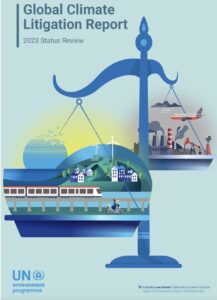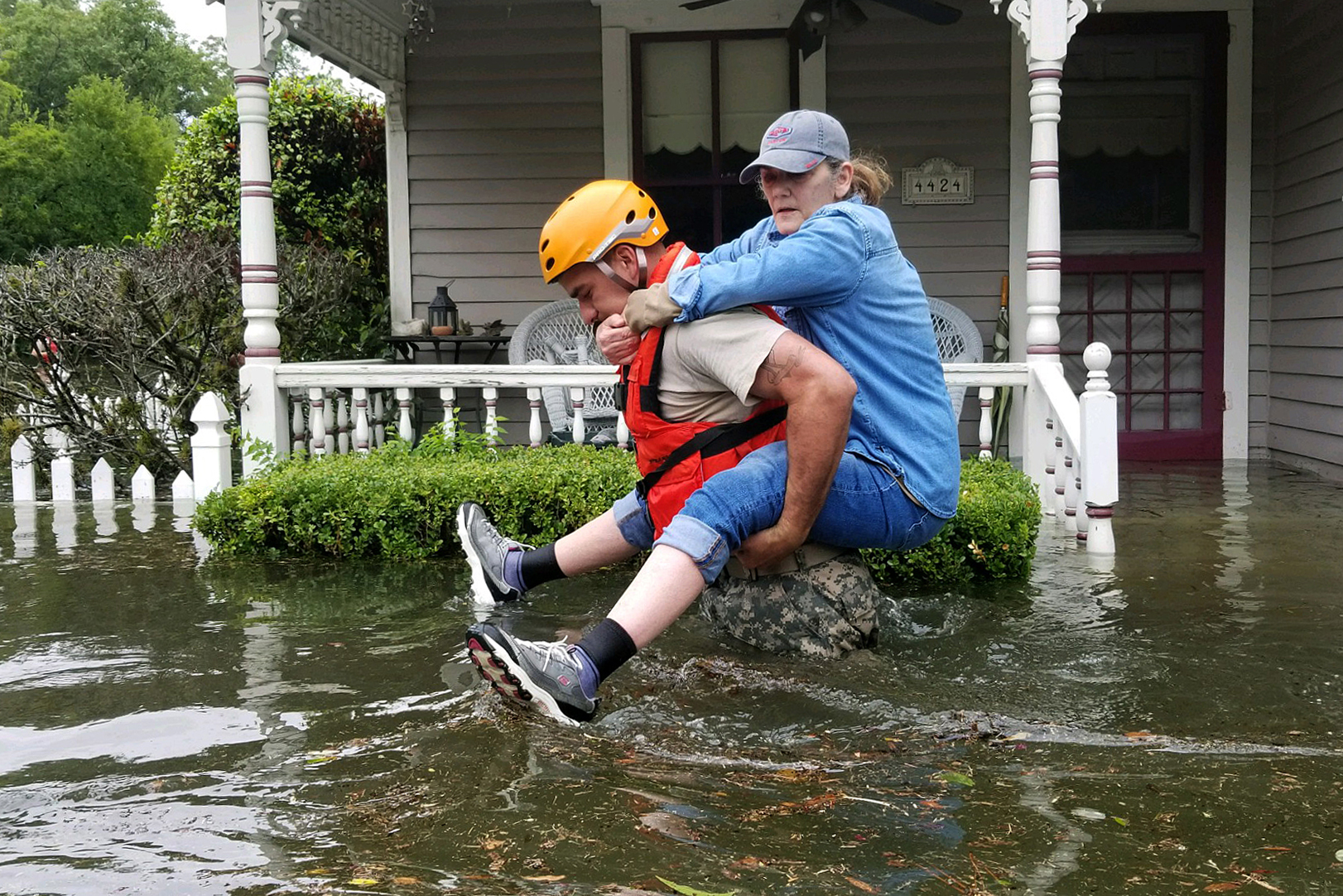 As the frequency and number of climate change cases continue to rise, a robust body of legal precedent is forming, shaping a well-defined field of climate law. Today, the United Nations Environment Programme (“UNEP”), with support from the Sabin Center, has published a survey of global climate change litigation that provides an overview of existing cases and a discussion of their key legal issues: Global Climate Litigation Report: 2023 Status Review (“Report”). The Report builds upon previous reports from 2017 and 2020, providing a comprehensive update on the current state of, and trends in, climate change litigation worldwide. It provides invaluable insights into the key legal issues that courts face in climate change cases.
As the frequency and number of climate change cases continue to rise, a robust body of legal precedent is forming, shaping a well-defined field of climate law. Today, the United Nations Environment Programme (“UNEP”), with support from the Sabin Center, has published a survey of global climate change litigation that provides an overview of existing cases and a discussion of their key legal issues: Global Climate Litigation Report: 2023 Status Review (“Report”). The Report builds upon previous reports from 2017 and 2020, providing a comprehensive update on the current state of, and trends in, climate change litigation worldwide. It provides invaluable insights into the key legal issues that courts face in climate change cases.
The Evolving Landscape of Climate Change Litigation
While their legal arguments and adjudicative forums vary, climate change cases typically address similar critical legal issues. This report provides a summary of several important issues. These include questions about the court’s authority to settle conflicts, determining which climate-related rights and obligations can be enforced, developing appropriate solutions to address the harm suffered by plaintiffs, and recognizing the essential role of climate attribution science.
The Report delves into various significant trends within climate change litigation, including:
- The Use of Climate Rights in Climate Litigation: There is a growing trend of litigants invoking “climate rights” in their legal arguments. This approach seeks to establish and assert the rights of individuals and communities affected by climate change, highlighting the duty of governments and other entities to protect these rights.
- Domestic Enforcement: Climate change litigation increasingly challenges the domestic enforcement or non-enforcement of climate-related laws. These cases aim to ensure governments fulfill their legal obligations to take concrete action in response to climate change.
- Keeping Fossil Fuels and Carbon Sinks in the Ground: A significant trend in climate litigation revolves around efforts to halt fossil fuel extraction and use. These cases emphasize the imperative of reducing GHG emissions and mitigating climate change by advocating for preserving carbon sinks and transitioning to renewable energy sources.
- Corporate Liability and Responsibility: Climate litigation increasingly focuses on holding corporations accountable for their contributions to climate change. These cases seek to establish corporate liability for climate harms and underscore the responsibility of businesses to mitigate their environmental impacts.
- Climate Disclosures and Greenwashing: Litigation addressing climate disclosures and greenwashing aims to ensure transparency and accountability. These cases urge governments and corporations to provide accurate and comprehensive information about climate-related activities, commitments, and impacts, combating deceptive practices and promoting informed decision-making.
- Failure to Adapt and the Impacts of Adaptation: Climate change litigation highlights situations where governments and entities have failed to adequately adapt to climate change’s effects. Additionally, cases address the impacts of adaptation measures, ensuring that adaptation strategies consider the interests and welfare of affected communities.
The Report makes clear that parties are presenting innovative arguments linking the actions of specific greenhouse gas emitters to global climate change and demonstrating the connection between foreseeable climate impacts and the particular harms suffered by plaintiffs.
Throughout the Report, readers will find summaries of significant cases that provide context and exemplify the issues and trends discussed. These case summaries offer concrete examples of how climate change litigation unfolds and shed light on the diverse legal strategies employed by litigants. These case summaries serve as valuable references for lawyers, judges, academics, and others, allowing them to deepen their understanding of the issues at hand and the evolving landscape of climate litigation.
Conclusion
The Global Climate Litigation Report: 2023 Status Review serves as a vital resource for understanding the current state of climate change litigation worldwide. As climate-related legal actions continue to grow, the Report highlights the key legal issues faced by courts and the innovative arguments put forward by litigants. The Report concludes that litigation is central to efforts to compel governments and corporate actors to undertake more ambitious climate change mitigation and adaptation goals.
Read the full Report here.
For more information, please contact Dr. Maria Antonia Tigre.
Dr. Maria Antonia Tigre is the Director of Global Climate Litigation at the Sabin Center for Climate Change Law at Columbia Law School.




